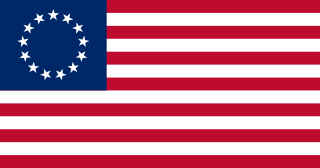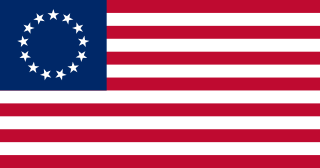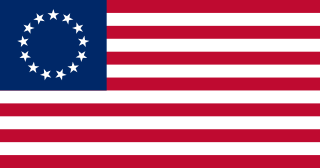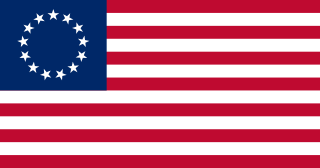News
Obama Talks Marijuana Reschedule: Publius Asks Why Schedule At All?
President Obama’s
comment last week that it is the responsibility of Congress to schedule
narcotics introduced two contested points: first, the role of executive power
in scheduling dangerous drugs; second, whether scheduling is even necessary for
cannabis and herbal cannabinoids.
In “Obama Says Easing Marijuana Restrictions a Job for Congress,” as
reported on TIME, the question is raised of the Drug Enforcement Agency’s cannabis scheduling. Obama said: “First
of all, what is and isn’t a Schedule I narcotic is a job for Congress.”
In “Obama, Who Evidently Has Not Read the Controlled Substances Act, Denies That He Has the Power to Reclassify Marijuana,” REASON’s Jacob Sullum
illustrates how Obama could proceed through executive power. Sullum cites the
three statutory criteria from the Controlled Substances Act (CSA) for drugs on
Schedule I: a high potential for abuse; no currently accepted medical use in
treatment in the United States; a lack of accepted safety for use of the drug.
Sullum notes: “The DEA argues that
marijuana satisfies the first criterion because people like to consume it for
nonmedical purposes, which according to the DEA qualifies as abuse. It’s
illegal, after all. According to that definition of abuse, prohibition
justifies itself, which hardly seems fair. A more reasonable view defines abuse
as harmful, excessive, or problematic use.”
“Further,” said Dan Linn, Executive Director of the Illinois chapter of NORML and part of Publius and The Cannabis Papers: “I feel we need to offer more than just
the idea of rescheduling and get people to start thinking about taking cannabis
off the CSA scheduling entirely; treat the plant like a therapeutic botanical
and regulate it like any other herbal vitamin or supplement.”
Linn added organizations such as the
American Herbal Pharmacopoeia and the American Herbal Products Association are scientifically
positioned to support the removal of cannabis from the CSA: “Otherwise, if it’s
on a controlled list – schedule whatever – the idea that cannabis sativa is
a ‘dangerous plant’ is still out there.”
“Given the safety profile of herbal
cannabinoids,” Linn offered, “let’s consider not burdening the plant – and
ourselves – with anymore scheduling lingo.”
The Cannabis Papers: A citizen's guide to cannabinoids (2011) is available at online retailers and for free by download.

More News

Homeostasis 2015: Publius’ Cannabinoid Science Champions ~ New on the Bryan William Brickner Blog
Homeostatic cannabinoid processes are this year’s champions in a Publius 2014 science celebration. In four brief science tales from the National Institutes of Health PubMed, bivalency (it doubles) and heteronomy (not autonomous) are highlighted f ...
Released On: 12/31/2014
Views: 6784

Synaptic Serotonin (5HT): Gut Work to Work Better in 2015 ~ New on the Bryan William Brickner Blog
Working the serotonin dependent digestive system is the modulation focus in this Publius gut update. In three (brief) science tales based on new research from the National Institutes of Health (PubMed), one reads of new serotonin (5-HT, 5-hydroxy ...
Released On: 12/27/2014
Views: 7108

Christmas 1944: Bastogne Perseverance, Patience and Victories ~ New on the Bryan William Brickner Blog
Celebrating the human spirit this Christmas Day, author Bryan W. Brickner honors our heritage via a soldier’s day in a long war. Leo Barron and Don Cygan’s book No Silent Night: The Christmas Battle for Bastogne (2012) is used to show how former ...
Released On: 12/25/2014
Views: 8955

Christmas Eve Laments 1944: No Silent Night in Bastogne ~ New on the Bryan William Brickner Blog
Celebrating the human spirit this Christmas Eve, author Bryan W. Brickner honors our heritage via the 1818 song Silent Night and the 2012 book No Silent Night: The Christmas Battle for Bastogne. Blanketed by time and war, Brickner notes one man’s ...
Released On: 12/24/2014
Views: 5239

Crossroad: There are no Pilgrims on the US Supreme Court ~ A Reprise by Political Theorist Bryan W. Brickner
Bryan W. Brickner utilizes John Bunyan’s English Christian classic, The Pilgrim’s Progress (1678), to highlight a US Supreme Court absent the Protestant Reformation. In this year’s Thanksgiving Day essay on the Bryan William Brickner Blog, one fi ...
Released On: 11/27/2014
Views: 13435

Robert E. Lee’s Nemesis, the Gallant Fourteenth ~ Veterans Day on the Bryan William Brickner Blog
Veterans Day on the Bryan William Brickner Blog highlights Robert E. Lee’s nemesis, the Gallant Fourteenth, an Indiana Civil War regiment. Political theorist Bryan W. Brickner notes several battlefield occurrences where fortune swings back and fo ...
Released On: 11/11/2014
Views: 11313

Veterans Day: American Dissent and Muhammad Ali ~ An Abens Review on the Bryan William Brickner Blog
American dissent is honored via a review of Muhammad Ali’s Greatest Fight, the 2013 HBO movie on Ali’s religious freedom case, Clay v United States. Ew Publishing’s William Abens notes the Supreme Court technical victory Ali achieved – while also ...
Released On: 11/10/2014
Views: 6660

Publius’ PTSD Re-Homeostasis ~ A Veterans Day Update on the Bryan William Brickner Blog
Publius’ Veterans Day cannabinoid science PTSD edition notes four 2014 PubMed articles on cannabinoids modulating re-homeostasis, our ability to heal. The post also highlights and honors US veteran Keith Marker and the PTSD relief he found via ca ...
Released On: 11/9/2014
Views: 12233

Key Robert E. Lee: Calling Steve About My 2016 Halloween Dream Return ~ New on the Bryan William Brickner Blog
Belief in oneself is the conjured ideal presented in a Halloween dialogue between authors Bryan W. Brickner and Stephen Young. This year’s dreamscape has Robert E. Lee standing with Revolutionary War rebel John F. Pettigrew, with Lee holding a (p ...
Released On: 10/31/2014
Views: 9018
Homeostasis: Publius’ Sleep Political Cannabinoid Science ~ New on the Bryan William Brickner Blog
Biology and botany clash in today’s cannabinoid research from the National Institutes of Health (PubMed). Publius of The Cannabis Papers looks at five 2014 articles on the cannabinoid system modulating homeostasis and sleep, with a special focus ...
Released On: 9/30/2014
Views: 8088

Homeostasis: Equinox Serotonin (5HT) Headache Stories ~ New on the Bryan William Brickner Blog
Equinox and Homeostasis are mid-point extremes that modulate our lives much like the serotonin (5-HT, 5-hydroxytryptamine) in our brains. In five (brief) science stories based on new research from the National Institutes of Health (PubMed), autho ...
Released On: 9/21/2014
Views: 13111

Constitution Day: Gus Kotka, Johnny Reb and Antietam 1862 ~ WCHU Series Finale on the Bryan William Brickner Blog
The US Constitution, Yankee Doodle Dandies, and the Spirit of ’76 are honored from Antietam and Sharpsburg Maryland this Constitution Day 2014. In the finale to the summer War Cry Heal Union series, author Bryan W. Brickner utilizes the lives of ...
Released On: 9/17/2014
Views: 21444

1776: Gus Kotka, Johnny Reb and the Dandies of Harlem Heights ~ New WCHU on the Bryan William Brickner Blog
Yankee Doodle Dandy and the Spirit of ’76 are showcased in the ninth posting of the summer War Cry Heal Union series from Ew Publishing. Author Bryan W. Brickner places Civil War Private Augustus (Gus) Kotka and Johnny Reb in a “spirited” dialogu ...
Released On: 9/16/2014
Views: 6469
Homeostasis: Publius’ (Ultralow) THC Political Cannabinoid Science ~ New on the Bryan William Brickner Blog
Homeostatic cannabinoid science is the focus found in new research articles from the National Institutes of Health (PubMed), with a spotlight on ultralow doses of THC protecting the brain from inflammation-induced cognitive deficits. Publius, of ...
Released On: 9/6/2014
Views: 14867

Homeostasis: Publius’ Alcohol Political Cannabinoid Science ~ New on the Bryan William Brickner Blog
Homeostatic cannabinoid science is the focus found in new research articles from the National Institutes of Health (PubMed), including one on the de-homeostatic (harmful) effects of chronic alcohol use to one’s cannabinoid system. Publius of The ...
Released On: 8/31/2014
Views: 9696

Word Wars: Napoleon’s Palm, Our Henry Lee and Hitler’s White Rose ~ New WCHU on the Bryan William Brickner Blog
An 18th century wonder, America’s First Amendment, is honored in a posting for the summer War Cry Heal Union series from Ew Publishing. Author Bryan W. Brickner highlights Western Civilization’s free speech tradition by contrasting it with two ...
Released On: 8/26/2014
Views: 5471

US Republic, Hebrews and George Washington’s Cleavage ~ New WCHU on the Bryan William Brickner Blog
The nuances of citizenship in the (new) US Republic are detailed in posting 7.5 of the summer War Cry Heal Union series from Ew Publishing. Author Bryan W. Brickner notes the ins and outs of George Washington’s ideas on citizenship through his wo ...
Released On: 8/18/2014
Views: 6389

Civil Wars: Gus Kotka, Johnny Reb and Robert E. Lee ~ New WCHU on the Bryan William Brickner Blog
Civil wars and constitutional representation are talked of in the seventh posting of the summer War Cry Heal Union series from Ew Publishing. Author Bryan W. Brickner honors the 150th anniversary of Private Augustus Kotka’s last day on earth ~ by ...
Released On: 8/11/2014
Views: 15962



